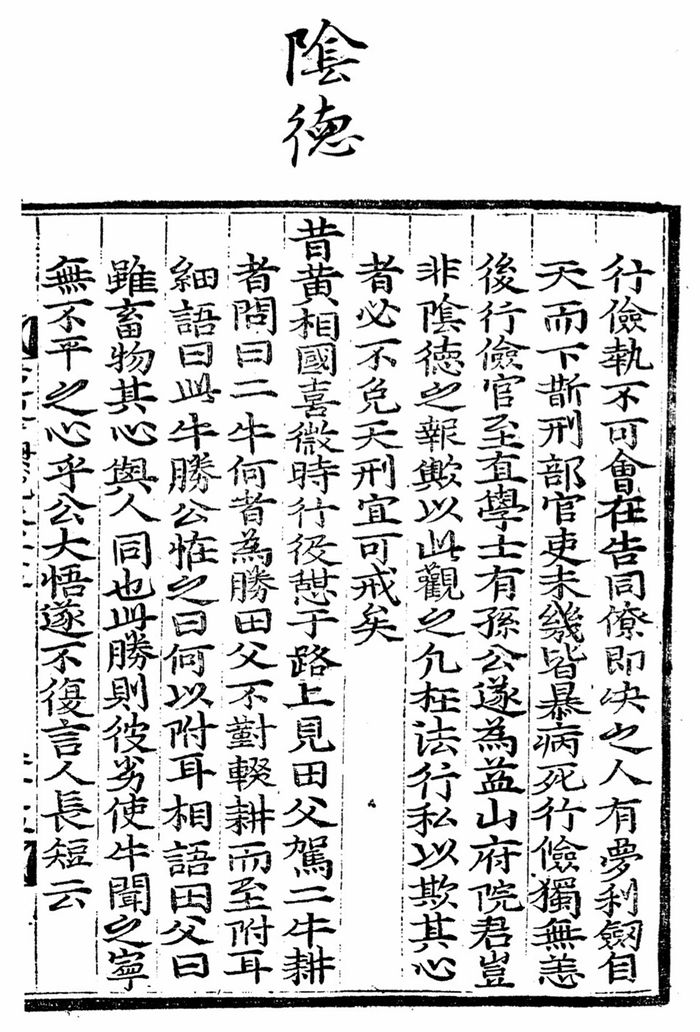(Translation) 2019 寧無不平之心乎
| Primary Source | ||
|---|---|---|
 |
Title | |
| English | ||
| Chinese | ||
| Korean(RR) | ||
| Text Details | ||
| Genre | ||
| Type | ||
| Author(s) | ||
| Year | ||
| Source | ||
| Key Concepts | ||
| Translation Info | ||
| Translator(s) | Participants of 2019 JSG Summer Hanmun Workshop (Intermediate Training Group) | |
| Editor(s) | ||
| Year | 2019 | |
Original Script
Translation
Student Translation : Olga
In the days of old there was Prime Minister Hwang Hee. When [he] was [still] in a low rank he was travelling. [He] was resting by the road. Saw a farmer driving oxen, plowing. [Hwang Hee] asked [the farmer]: "Out of two oxen, which one is better?" The farmer did not reply. [He] kept plowing and came [after that]. [He] took [Hwang Hee's] ear and said in a low voice: "This ox is better." The master [thought it] odd and said: "Why are you speaking to my ear?" The farmer said: "Although it is a beast, its mind and [that one of] a human are the same. This [one] is better and that [one] is worse. If you let an ox hear it, how would it not have a mind of resentment?" The master came to a great realization. Therefore he never spoke of people's strengths and weaknesses again.
- Discussion Questions:
1. Is there a way to better reflect a meaning of mutual communication in the 相語? Should it rather be translated as "speak to each other"?
(YO) You're right. There is nothing mutual in this case. It was a one-directional speaking of the farmer to Hwang. There are a few cases where 相 is used in a word where there is no clear sense of mutuality. 相示 is one such case that comes to mind, which often means "to show" not necessarily to each other but one to the other. Perhaps it has something to do with the fact that the first meaning 相 as a verb is "to look at" (as its graphic part 目 suggests). It was perhaps basically "to look (at the other) and say." If that is the case, then we can suppose the meaning of mutual is in the physical context rather than the conceptual--exchange of message. At any rate, I think it is safe to translate 相語 "tell" or "inform" given many similar examples.
2. How should we translate 悟 without giving it religious connotation?
(YO) "Insight"? "Awakening"? But, then again, are we sure that his understanding/realization was not religious at all? It might not have been Christian-religious but certainly the word 悟 itself was actively used in Buddhism.
(YO) 黃喜 is romanized Hwang Hŭi in McCune-Reischauer system.